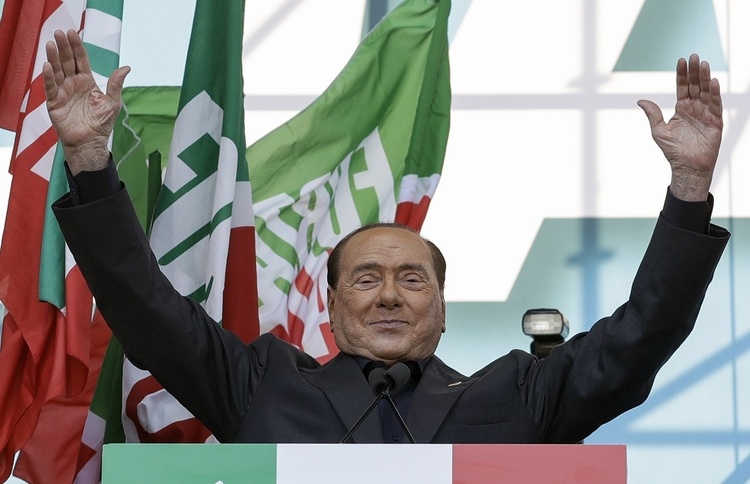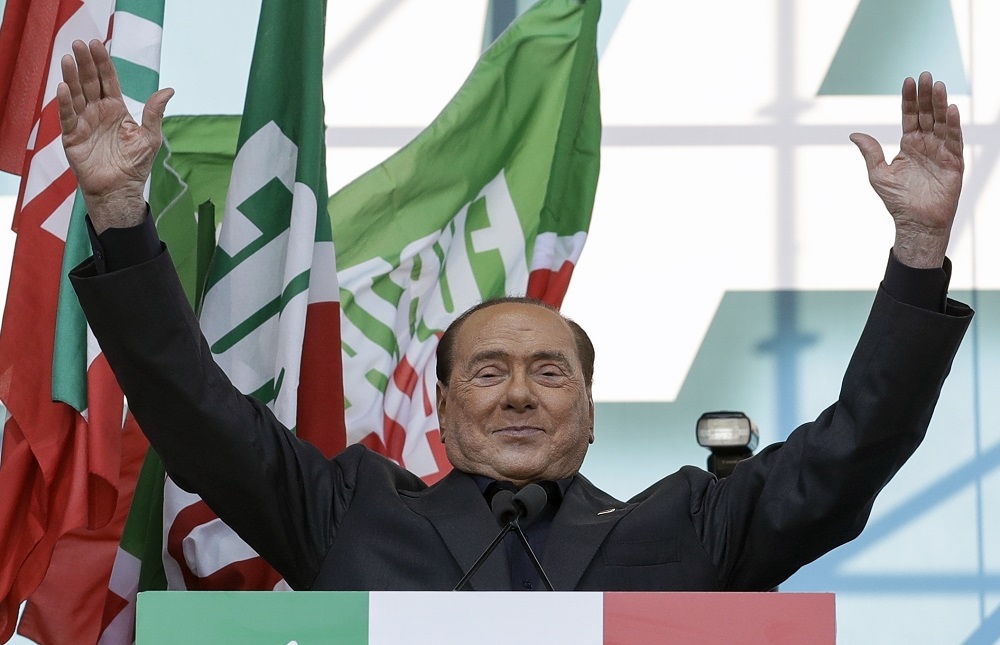Berlusconi also announced he is opposing, along with his allies in a centre-right bloc, any bid for the presidency by Prime Minister Mario Draghi.
Draghi, the former head of Europe’s central bank, is now leading a pandemic-unity government with wide political support.
Together, Berlusconi, anti-migrant League leader Matteo Salvini and nationalist Brothers of Italy leader Giorgia Meloni could command some 400 of the 1009 grand electors, who are set to start casting written ballots for Italy’s next president on Monday.
The electors from the lower house of the Italian parliament, the Senate and special regional representatives are tasked with choosing a figure who could unite the country.
Berlusconi, 85, who founded the centre-right Forza Italia party three decades ago and served as prime minister three times, long has been a lightning rod for protests.
His past includes a tax fraud conviction and a slew of sex scandals linked to ‘‘bunga bunga parties”, while his business empire that includes three private TV stations raised conflict-of-interest concerns.
He spent weeks sounding out his own conservative allies as well as lawmakers from centrist forces to see if he had sufficient support to add Italy’s highest office to his political resume.
The prospect of Berlusconi becoming president already prompted a protest earlier this month in Rome, and another had been set for Monday, when voting begins.
In dropping his presidential bid, Berlusconi said he had confirmed he would have had enough support to be elected to the seven-year term of president.
He said he was “honoured and moved” but didn’t want to be the cause of “polemics or lacerations” in a nation still struggling with the COVID-19 pandemic.
With his characteristic lack of modesty, Berlusconi added that the presidency “represents the unity of the nation, of the country that I love and to whose service I placed myself for 30 years, with all my energies, my abilities, my competency”.
Berlusconi taking himself out of contention brought reactions of relief, including from former prime minister Giuseppe Conte, whose Five-Star Movement had been branded by Berlusconi as a danger to the nation.
“We had said it clearly — the candidacy of Berlusconi was unacceptable,” Conte tweeted.
“With his withdrawal we can take a step forward and begin a serious comparison among political forces to offer to the country a figure of high profile, authoritative, widely shared.”
The term of the current president, Sergio Mattarella, expires on February 3.
- AAP











